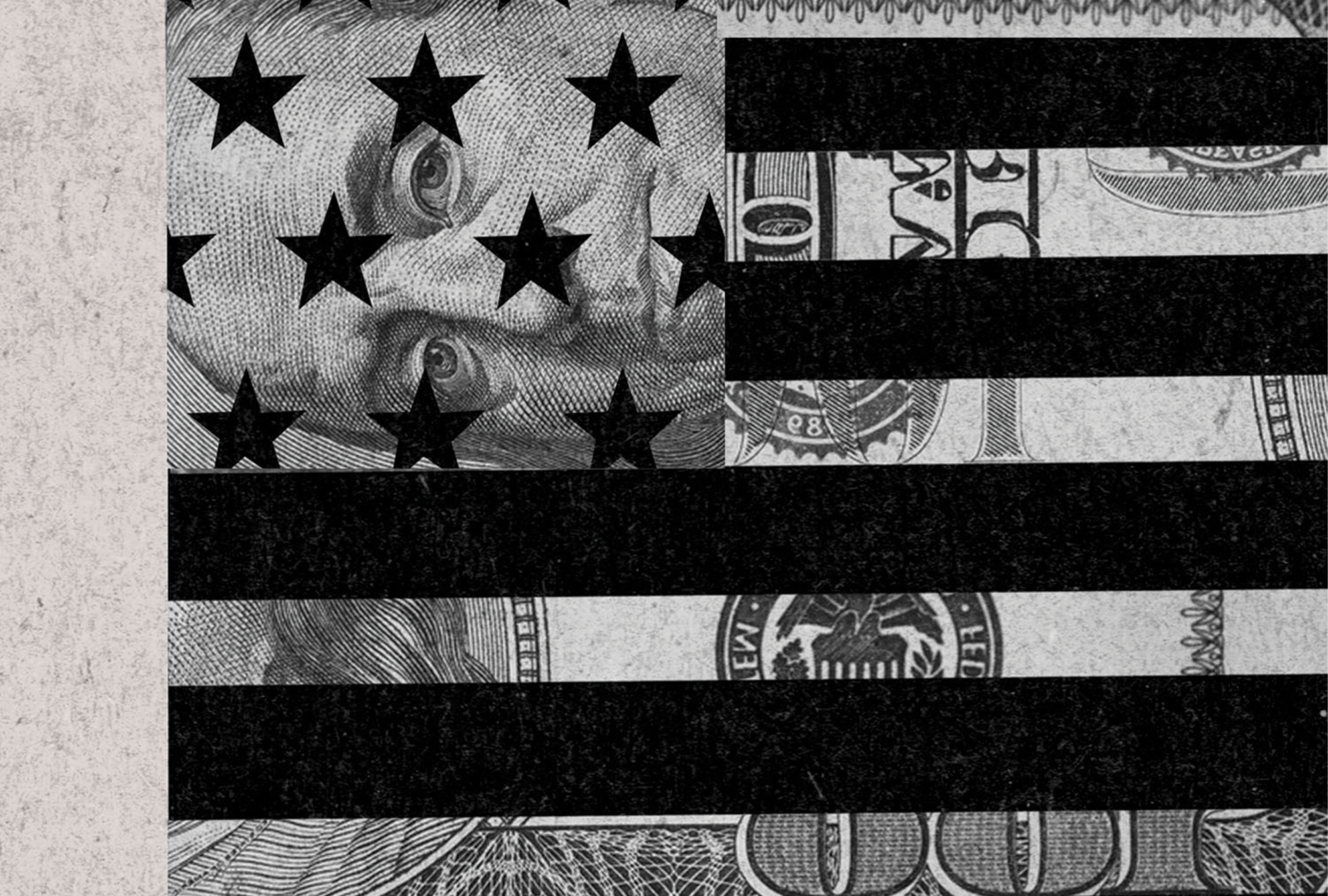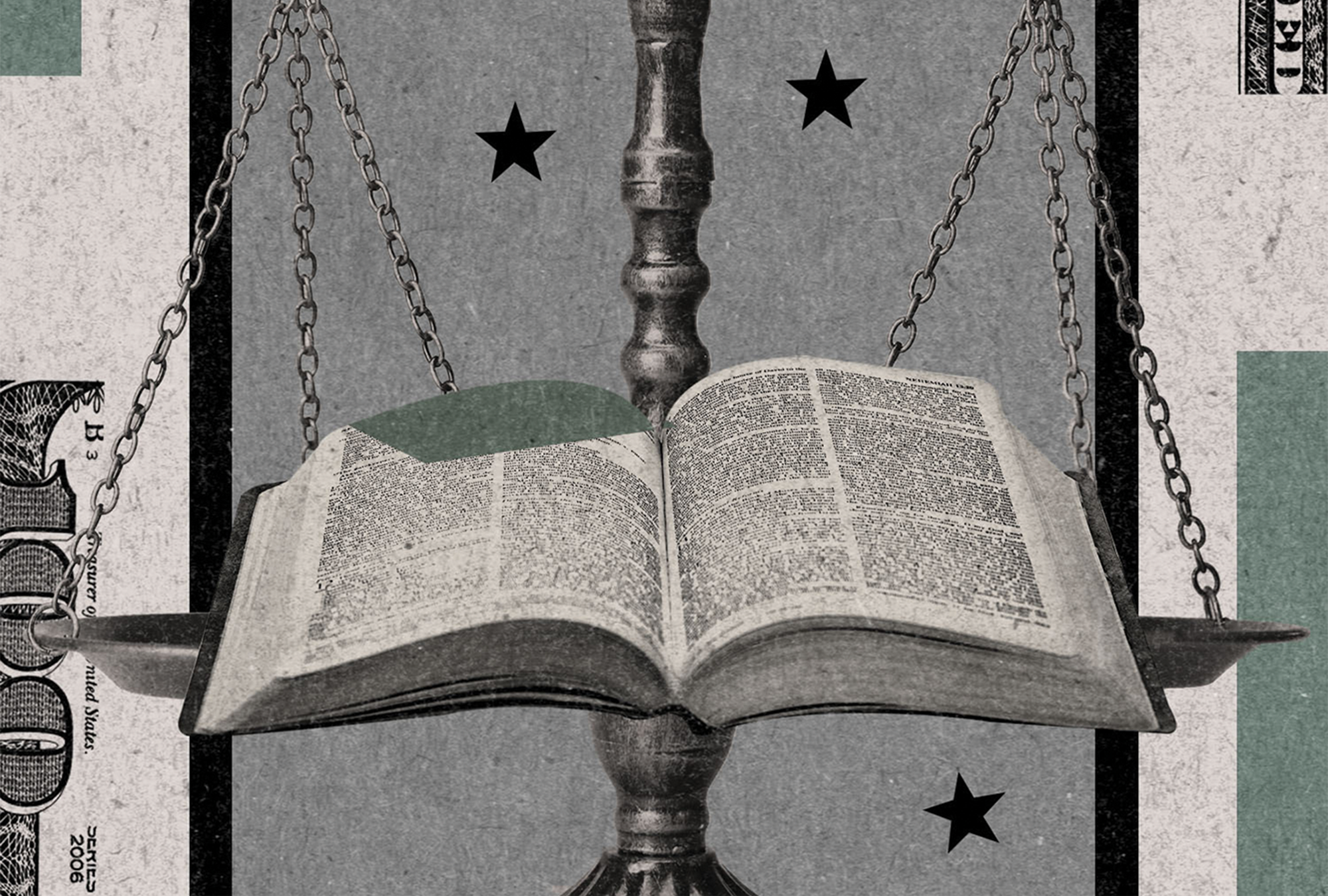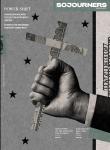Share As A Gift
Share a paywall-free link to this article.
This feature is only available for subscribers.
Start your subscription for as low as $4.95. Already a subscriber?

Illustration by Mark Harris
IN NOVEMBER, THE United States joined Argentina (Javier Milei), India (Narendra Modi), and Hungary (Viktor Orbán), among other countries, when it elected an authoritarian as its chief executive. In the case of Donald J. Trump, examples of these far-right tendencies include plans for mass deportations, promises to replace nonpartisan government employees with loyalists, and threats to put political critics on trial.
How did we get here? And what do we need to know to mitigate harm, save what and who we can, and work toward a more free and equitable future? Some of us may feel weary and defeated, but journalist Katherine Stewart, who has investigated the authoritarian movement for more than 15 years, encourages curiosity: “We can’t address our problems unless we know what they are.” Those problems include “decades of investment in a larger anti-democratic movement that would not have dissolved even if they had been defeated at the ballot box in this election cycle.”
In her forthcoming book, Money, Lies, and God: Inside the Movement to Destroy American Democracy, Stewart explores a network of strange bedfellows who drive a broad authoritarian movement both in the United States and abroad. The players in this network have different motivations: Ultra-rich funders aim to destroy the regulatory state to gain even more wealth, funneling resources to groups that further their aims. “New Right” academics and proto-academics pursue the ascendance of their pet ideologies. Veteran political operatives find new partners in the hunt for power.
Though many of the funders and power players within this movement are not Christian or even religious, Christian symbols, pastors, and churches have played a key role. Christian leaders — white evangelicals, but also conservative Catholics, Pentecostals, and others — and the warped theologies they peddle have helped convince voters that we are in a state of emergency. As evidence, these Christians baptize anxieties about sexuality and gender, the economy, and shifting demographics as evidence that America has lost its way and needs to be saved by a strongman.
Stewart’s other books include The Good News Club: The Christian Right’s Stealth Assault on America’s Children (2012) and The Power Worshippers: Inside the Dangerous Rise of Religious Nationalism (2020), which was the basis for the 2024 documentary God & Country. Stewart spoke with Sojourners editor Julie Polter before and after the November 2024 U.S. election. This interview has been edited for length and clarity.

Julie Polter: How do you explain what happened in the 2024 U.S. election?
Katherine Stewart: A lot of the people who turned out to vote for Biden in 2020, and were explicitly voting against Trump, simply did not turn out for Harris this time. [We] have a country where 40 percent to 50 percent of people don’t turn out to vote — but you can mobilize huge numbers of people through their faith communities; you can really swing a district if you get right-wing churches and religious communities to turn out their people. The Christian nationalist movement functions in part as a giant voter-turnout machine. A lot of Americans voted for Trump simply because their pastor told them that Republicans are people of ethics and Democrats want to destroy the American family. It’s not true, but that’s the message that a lot of people got.
The fact that a convicted criminal and known rapist who has attempted to overthrow a previous election won the 2024 election represents an epic failure of many of the major institutions in our society. It represents a failure of the judicial system to hold this individual accountable. It represents a failure of much of the education system to help students discern the difference between news and propaganda. It represents a failure of the Republican Party to filter out candidates who are egregiously unfit for office. And frankly, I think it represents a failure of a large part of the American public to understand their basic duties as citizens. There’s some real soul-searching that must happen.
What does your reporting tell us about what we’ll face in this administration? Trump is offering his supporters lies, grievance, and vision. But just because they voted for him doesn’t mean that those policies are going to really benefit them in any substantial, material way, because most of them are not. Trump is marrying this demagoguery to an extreme right-wing agenda calling for divestment in public projects and public benefits. He wants to replace federal employees hired for their talent and expertise with loyalists, which doesn’t make for a strong, effective government. Just because a lot of folks voted for him doesn’t mean that they’re going to be happy with the results. But he will try to cast his failures as wins. The Right has created such a strong disinformation machine — a propaganda machine — that it’s hard to convey the message.
You write that “whatever was left of the social conservatism of the old religious right [has] passed away, to be replaced with authoritarianism, or fascism.” What does this mean? There are diverse kinds of leaders. There are pastors and religious leaders who get the rank and file on board, like Lance Wallnau and John MacArthur. There are also funders like the Wilks brothers, Richard Uihlein, the Koch brothers, the DeVos/Prince family, and Tim Dunn. These folks have quite different agendas. Some of the funders are, in fact, not religious or not Christian — such as Barre Seid, who gave the largest political donation in history, $1.6 billion.
Then you have a collection of people who really run the Christian nationalist movement and master the get-out-the-vote machinery. People like Ralph Reed, Tony Perkins, Chad Connolly, Bob McEwen, other members of the networking groups like Ziklag, which connects very wealthy funders of the movement with politicians and organizers, and the Council for National Policy, which also gets organizational leadership together with funders. This cohort has successfully converted a network of tens of thousands of conservative churches into a large and effective partisan political operation.
Then we have a powerful group of New Right thinkers, some of whom adhere to ideologies that have taken a very explicitly anti-democratic turn.
These different kinds of leadership work together. But they don’t all have the same agendas. In fact, sometimes their agendas are very much at odds with one another. The funders want plutocratic policies that benefit their expansion of wealth, and many of the pastors are working more on the culture-war side. But they’re all part of this anti-democratic movement.

What holds these different players and agendas together? One shared core idea of both a religious nationalist mindset and a broader anti-democratic mindset is that we’re facing an absolute catastrophe. Society is under threat from people — secularists or Democrats — who are often represented as demonic or under the control of Satan.
If we’re facing this absolute catastrophe as a nation, we’re in a permanent emergency, and that justifies any means. The Claremont Institute and other New Right organizations pushed a secular version of these ideas in the lead-up to 2016. They’ve used these ideas to justify the coup attempt by Donald Trump and the MAGA movement. Of course, there’s a religious analog as well. The crucial thing to understand about this permanent emergency talk is that historically and now, it’s always connected to the celebration of strongman rule.
The idea is that if we’re facing a permanent emergency, any corrupt backroom deal, any sort of alliance with a corrupt leader, any breaking of the rules of democracy is okay to save us from this apocalyptic fate. The intellectuals and thinkers behind the New Right are frankly very explicit about this. They and their oligarchic funders want to be a new elite. They want to be in charge. And they want to smash the democratic consensus because they don’t think it’s going to give them the policies that they want. Sometimes I think of the culture wars and religious nationalism as shiny baubles that they just dangle in front of the rank and file to get them on board.
What do we need to understand about how faith is being deployed in the assault on U. S. democracy? Christians who reject the politics of conquest and division, which I believe is most American Christians, need to understand that their faith is being misused and exploited. It’s not their fault that people are invoking Jesus and their faith to pursue these authoritarian agendas, but they should be aware of what’s going on.
There are many Christians defending their faith, including Christians Against Christian Nationalism, Faithful America, the New Evangelicals, Network Lobby for Catholic Social Justice, Vote Common Good, and the Baptist Joint Committee for Religious Liberty. But these are not equivalent movements. One side [the anti-democratic movement] has endless amounts of money and a deep history of organizing. Those of us who support democracy are in the majority, and we need to get engaged, not just on the national level, but on the local level as well. We have to recognize that the anti-democracy movement is divided. What the funders want isn’t what the rank and file necessarily want. Those fissures should be explored and exploited. People need to understand that the separation of church and state actually bolsters both democracy and religious freedom, and it’s worth defending.
People always ask, “What can we do?” The breakdown of local community is a big piece of this: schools that aren’t being adequately funded, a housing crisis that makes it harder for people to get by, the erosion of rights for the workforce, the far-right economic policies being promoted by the movement’s funders, churches that are taken over by extremists.
These factors do a lot to erode communities. So, the things that build a healthy foundation for communities also help create a stronger democratic future. Some of the reasons that the Right has been so successful in culture wars in the schools is that a lot of people sit back and just don’t get involved. They take these institutions for granted, but when they stand back, extremists step in. On the bright side, of course, is that this battle over public education has now drawn in some sensible progressive and moderate people who now participate when previously they would have just allowed the machinery to run itself.
It’s hard to have time to involve yourself in local community-building initiatives because we’re all so busy with work and families and caring for elders and making sure there’s food on the table, etc. [Well-funded, focused] groups such as Moms for Liberty have an advantage over people who simply care about their kids’ education and want things to run the way they normally do.
We have the power. We just need to use it.
Based on your reporting, what strategies will it take to defeat these anti-democratic forces? Those of us who believe in democracy and wish to restore it need to think long term. Back [in the 1970s] when the New Right started — you know, Paul Weyrich and Phyllis Schlafly — they were really on the outs culturally. They knew there was not going to be an easy win, so they started investing in the infrastructure of the movement. They found funders who were willing to write the checks for that. We need to invest in a legal movement that affirms our constitutional principles, and the principles of justice and pluralism, that reflect the best principles of a democracy. We need policy groups that mirror in some regards the right-wing policy groups. We need networking organizations. We need funders to appreciate that. Throwing your money at politicians or technocratic solutions is not as effective as investing in individuals and organizations and networks.
There are a lot of faith organizations out there trying to repudiate Christian nationalism and repudiate the politics of domination and conquest that movement represents. But they don’t have a fraction of the funding that [right-wing] organizations like Faith Wins or Watchmen on the Wall or other pastor networks have. This is a movement that claims to stand for the American family, and yet they’re driving support for politicians whose policies are making it so much harder for American families to succeed.
Amid the need for infrastructure, funding, and strategy to build a robust pro-democracy movement — is there a role for one-to-one conversations with friends or family who hold authoritarian beliefs? I think it’s always worth having these conversations. When you do, you’re going to find that a lot of them care about their families. They care about their communities. They really do believe they’re doing what’s best for our society but, unfortunately for many of them, their good intentions have been harnessed in service of an agenda that’s harming our democracy, dividing our communities, and promoting hate and division.
A lot of Americans have been drawn into these misinformation bubbles and other iterations of conspiratorial thinking. People drawn into those disinformation bubbles become extremely hard to reach because they’re hearing these messages over and over. There’s been a lot of investment in weaponizing their grievances — finding what may be legitimate grievances but then weaponizing them and hurling them at a perceived enemy.
You can usually find something you have in common and then try to highlight whatever their issue may be, the inconsistencies in anti-democratic messaging, and the motivations of the people behind it.
The facts on the ground are hard, but I think of the saying I learned from Rev. Kelly Brown Douglas: “The hope is in the struggle.”

Got something to say about what you're reading? We value your feedback!